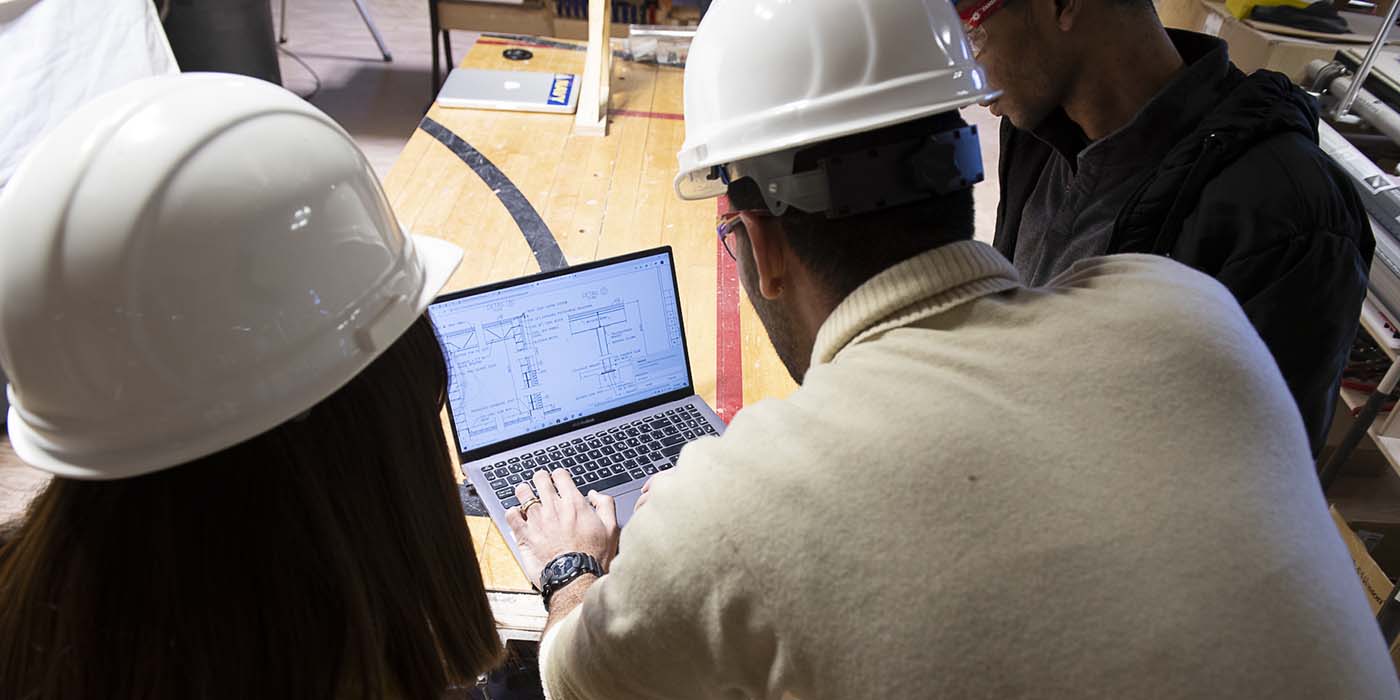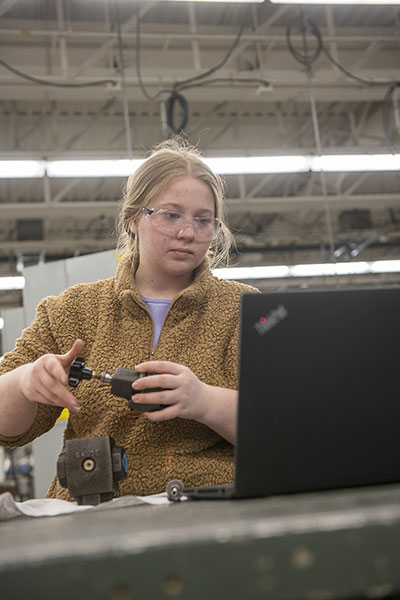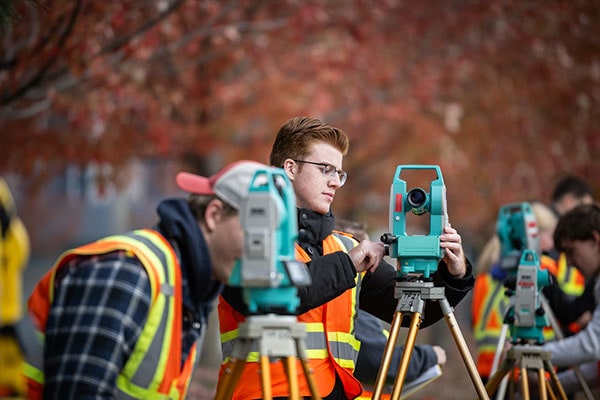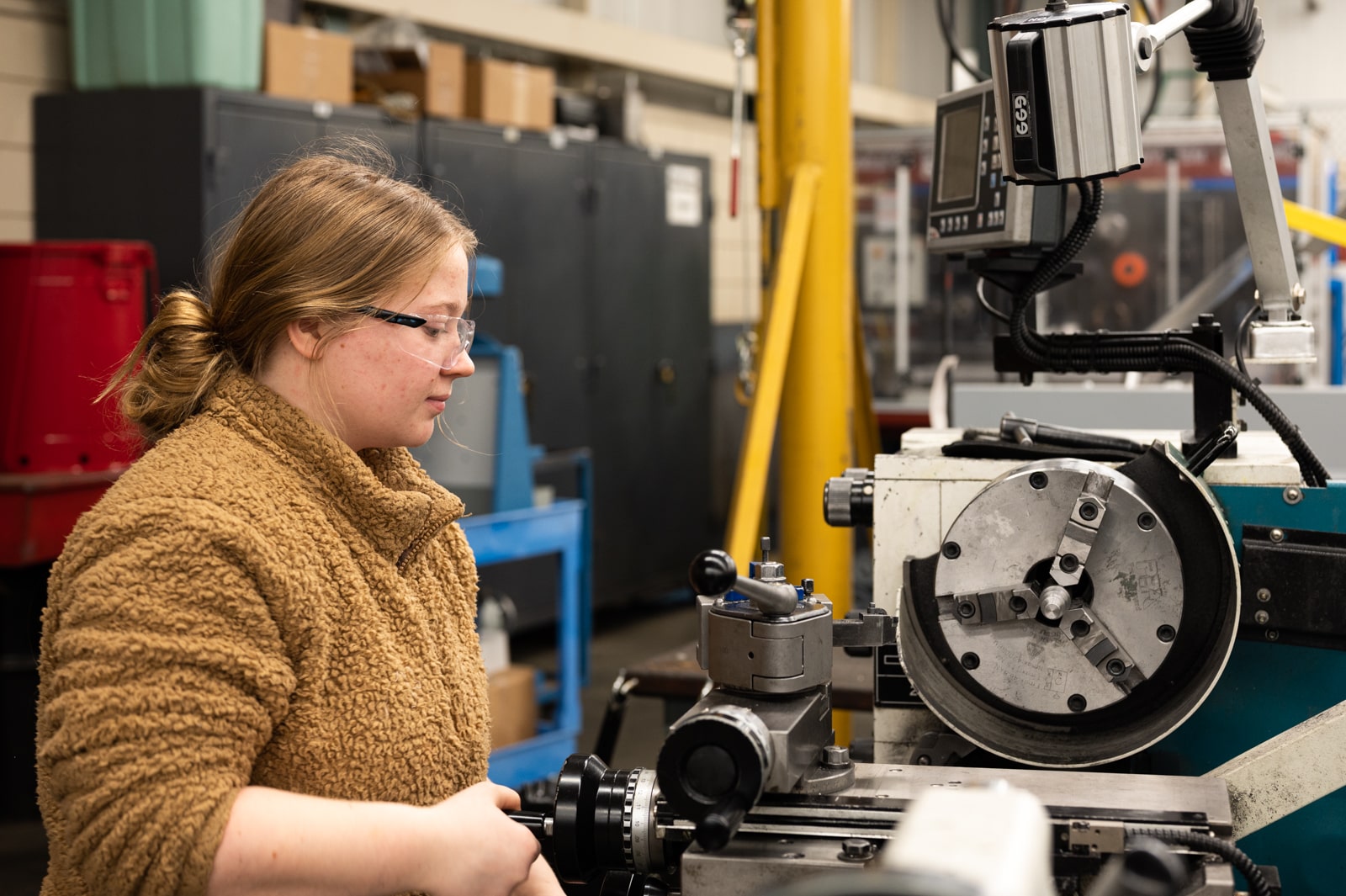It’s a fact that there is a shortage of skilled trades workers in Canada, creating a golden opportunity for in-demand, high-paying careers. Explore the myths about skilled trades and why they’re worth a second look.
Myth 1: Skilled Trades consist of physically demanding, dirty, manual labour
Fact: Skilled trades are a varied set of professions that require specialized training, expertise and skill.
People often misunderstand what the skilled trades are really all about. If you see a construction worker out on a job site, you might think that swinging a hammer or manual labour is all that they do and that the only skilled trades work involved in completing a project like that would be construction, plumbing or electricians. But there’s more to it than that–skilled trades encompass a wide range of professions that demand expertise, precision, and in-depth knowledge. Not only do plumbers, electricians, and construction workers require a deep understanding of their field of expertise, but the skilled trades have far more career opportunities to offer than just these three disciplines. In fact, Skilled Trades Ontario identifies 144 recognized trades, including things like Horticulture Technician, Child Development Practitioner and yes, Plumber.
Myth 2: Skilled Trades aren’t for women
Fact: Many women work in the skilled trades.
All skills involved in the skilled trades are ones that women can learn and excel at. There is a great demand in the workforce for skilled trades, meaning that employing women in the skilled trades benefits everyone. Additionally, there is help for women looking to enter the skilled trades. Programs like Jill of All Trades™, which brings female high school students to a skilled trades education fair, exist to help encourage women to pursue a career in the skilled trades, not to mention employers looking to diversify their workforce. Although women only make up about 13% of the skilled trades workforce in Ontario, that number is starting to grow as more women realize the value of a career in the skilled trades.
Myth 3: Skilled Trades don’t pay well
Fact: Skilled trades workers can make 6 figures or more per year in Canada, depending on experience and chosen trade.
The skilled trades are in demand in Ontario and throughout Canada. Because of the demand, salaries might be higher than you expect. Entry-level positions’ annual salaries start around $60,000 or more and as you advance in your career, your salary is likely to climb with your expertise, often into the six-figures with experience and advancement.
Myth 4: Skilled trades are just jobs, not a long-term career
Fact: Skilled trades are a stable career option with plenty of opportunities for advancement.
Skilled trades require a specific set of skills that take time to learn. In-depth knowledge and an education or apprenticeship combine in a skilled trades career. With this background, you can steadily gain experience and build a career in the skilled trades. When you do, you’ll find stability and long-term career prospects due to demands in the industry. As you gain knowledge and experience, your potential for advancement and higher earnings increases.
Myth 5: Skilled trades are for individuals who lack the grades for other occupations
Fact: Skilled trades require intelligence to learn and unique skills and abilities to succeed.
Skilled trades require problem-solving skills, effective communication, continuous learning and more. An education in skilled trades often requires learning a complex and distinct set of skills. In fact, apprenticeships take longer to acquire than a degree, but they allow you the unique advantage of earning money while you learn. You’ll be working with sophisticated systems and technology, need a knowledge base of rules and regulations in your industry and the soft skills to communicate and work with team members or clients. While there is value in recognizing the variety of learning styles, skilled trades still require a person to be able to complete and manage complex projects, understand new and emerging technologies and have a skill set that will support them throughout their career.
Interested in learning more about apprenticeship and skilled trades training opportunities?









